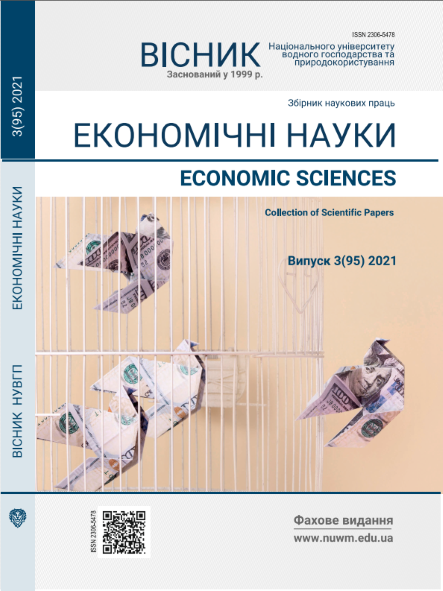THEORETICAL AND METHODOLOGICAL ASPECTS OF THE DEVELOPMENT OF LEASE-LAND RELATIONS
DOI:
https://doi.org/10.31713/ve320212Keywords:
lease-land relations, land-natural potential, land lease, agricultural production, lease agreement.Abstract
The article considers the theoretical and methodological aspects of the development of lease and land relations. It is emphasized that one of the main tasks of increasing the efficiency of the agro-industrial complex of the country is the greening of land and natural resources and the development of effective lease and land relations in agriculture. In modern conditions of agricultural production, land relations are fundamental in the system of social relations, because the land is both a means and an object of labor, it is the main production resource. Subjects of lease and land relations in the legally defined field can be citizens, legal entities, local governments, and public authorities. As a general rule, the lease agreement is concluded for a specified period. If the lease term is not specified in the contract, the lease agreement is considered concluded for an indefinite period. Lease is a right that is valid for the period stipulated in the contract, after which the leased property – the land is subject to return to the lessor, the owner of the land.It is important to note that the development of lease and land relations depends on political, economic, physical, and organizational factors.Political factors of lease-land relations characterize the relationship of ownership of them. These factors are manifested through the actions of public authorities, which determine the forms of land ownership, the mechanism of acquisition of ownership by the relevant entities, and so on. Economic factors relate primarily to the organization of rational land use.It is emphasized that the lease of agricultural land is an effective type of market relations and can be an alternative to buying and selling. It is determined that the function of the state in lease and land relations, as well as in protecting the interests of landowners, should be decisive. The effective implementation of such functions of the state should be ensured by consistent monitoring of lease and land relations by state institutions. Lease land relations will ensure the desired effect only in terms of state, legal, financial, and organizational support, proper legal framework, as well as social justice.References
Дехтяренко Ю. Ф. Методичні основи грошової оцінки земель в Україні : навч. посіб. К. : Профі, 2007. 624 с.
Земельний кодекс України: діюче законодавство з коментарями. Х. : ООО «Одисей», 2002. 600 с.
Семчик В. І. Проблеми права власності та господарювання у сільському господарстві : монографія. К. : Ін-т держави і права ім. В.М. Корецького НАН України, 2008. 216 с.
Корнєєв Ю. В. Земельне право : навч. посіб. К. : Центр учбової літератури, 2009. 240 с.
Макаренко А. П. Теорія і практика державного регулювання в аграрній сфері : монографія. К. : ННЦ «Інститут аграрної економіки» УААН, 2009. 636 с.
Богач Л. В. Організаційно-економічна оцінка функціонування аграрних формувань на основі оренди сільськогосподарських земель. Науковий вісник Національного університету біоресурсів і природокористування України. 2014. Вип. 200. С. 41–47.

